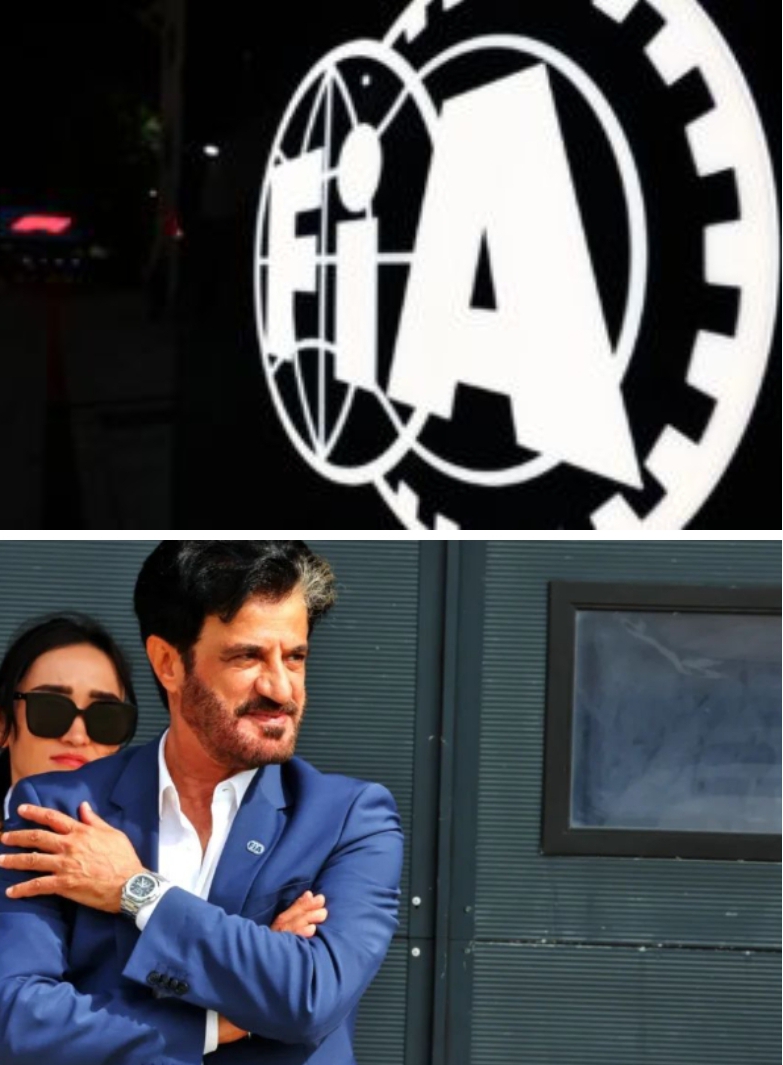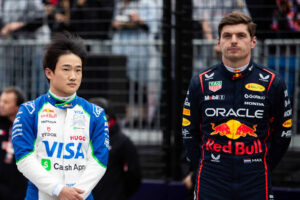🚨BREAKING NEWS: FIA exodus continues with two new exits under Mohammed Ben Sulayem……. Full Story

FIA exodus continues with two new exits under Mohammed Ben Sulayem
In the latest development surrounding the FIA, two more senior figures have departed the motorsport governing body, adding to a series of high-profile exits under the leadership of President Mohammed Ben Sulayem. The resignations of FIA Director of Communications Luke Skipper and Secretary General of Mobility Jacob Bangsgaard have reportedly been confirmed, with both leaving to pursue other opportunities. Although their departures are said to be unrelated to any internal controversy, they reflect an ongoing trend within the organization during Ben Sulayem’s tenure.
Controversial Leadership and Verstappen Incident
Ben Sulayem’s presidency has been marked by several contentious moments, the latest being his crackdown on Formula 1 drivers’ language, which led to a public confrontation with Red Bull’s star driver, Max Verstappen. The clash occurred after Verstappen used expletives during a press conference at the Singapore Grand Prix, resulting in the FIA sanctioning him with a day of community service. Verstappen, notably frustrated with the penalty, reportedly began contemplating his future in Formula 1, bringing further attention to the FIA’s recent actions and decision-making process.
This incident has fueled further criticism of Ben Sulayem, who has already faced scrutiny for his management style and the direction he is steering the organization. Many in the motorsport community believe that his efforts to clamp down on drivers’ behavior are excessive and are detracting from the sport’s appeal.
An Ongoing Exodus
The resignations of Skipper and Bangsgaard are part of a larger pattern of departures from the FIA in recent months. Earlier, Steve Nielsen stepped down as the FIA’s Sporting Director after just 11 months in the role. Deborah Mayer, who held the position of Commissioner for Women in Motorsport, also left around the same time, along with Tim Goss, the Technical Director. These exits were followed by the departures of Pierre Ketterer, Director of Governance and Regulatory Affairs, Edward Floydd, Head of Commercial Legal Affairs, and Natalie Robyn, the FIA’s first-ever CEO, all within the first half of 2024.
While many of these resignations have been framed as career moves or personal decisions, the sheer volume of high-profile exits has sparked concern about the internal state of the FIA. The governance and stability of the organization are being questioned, with critics pointing to Ben Sulayem’s leadership as a contributing factor to the ongoing turnover.
FIA Under Scrutiny
Beyond the internal turmoil, Ben Sulayem has faced significant external criticism. In a recent interview with Autosport, the FIA President launched a public defense of his organization’s role in Formula 1’s success, lamenting the lack of recognition the FIA has received for the sport’s growing popularity. “We will never get the credit. Impossible. We’ll only get rubbish. That I know,” Ben Sulayem said, expressing frustration that while others—such as teams, drivers, and commercial partners—are benefiting financially and in terms of recognition, the FIA itself is being overlooked.
Ben Sulayem’s comments reflect a deeper frustration with the relationship between Formula 1 and the FIA. As Formula 1 has surged in popularity worldwide, thanks to high-profile events, television deals, and expanding fan engagement, the FIA’s role in regulating the sport has sometimes been overshadowed by the sport’s commercial and entertainment aspects. This is a sore point for the President, who believes that the governing body’s contributions are vital but undervalued.
Challenges Ahead for the FIA
The FIA’s leadership under Ben Sulayem now faces multiple challenges. Managing internal cohesion and addressing the frequent exits of senior figures will be critical to maintaining the organization’s effectiveness. Moreover, navigating the relationship between the FIA and the wider world of Formula 1, especially given the commercial interests of F1’s owners, Liberty Media, will be a delicate balancing act. Ben Sulayem has made it clear that he feels the FIA is being unfairly blamed or overlooked for various issues, but his ability to foster collaboration between the governing body and the sport’s other key stakeholders will be central to resolving the tensions that have emerged.
As the FIA continues to reshape its leadership structure in the wake of these recent resignations, the motorsport community will be watching closely to see how Ben Sulayem responds. Will the exodus of senior figures be seen as a reflection of wider issues within the organization, or will it offer an opportunity for the FIA to bring in fresh talent and new ideas? Either way, with the backdrop of driver frustrations and regulatory disputes, the future of the FIA’s leadership under Ben Sulayem remains uncertain.






